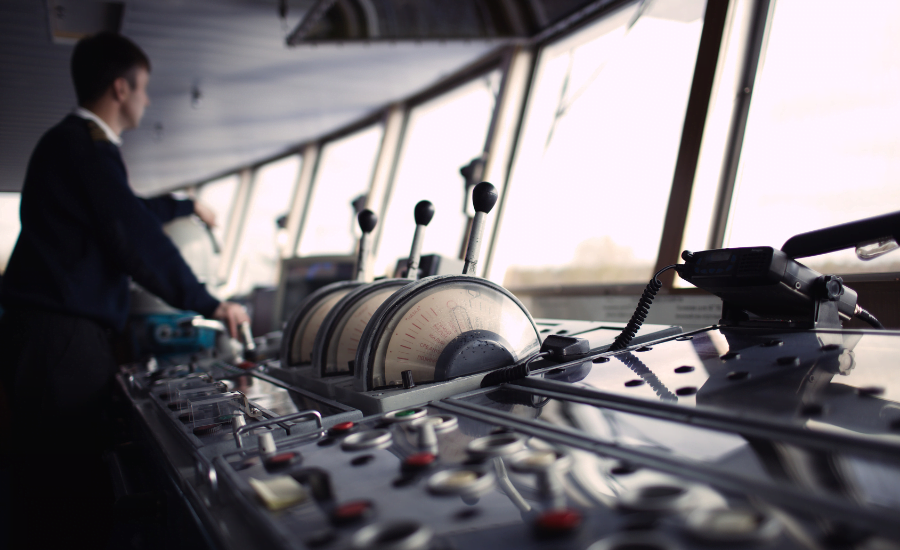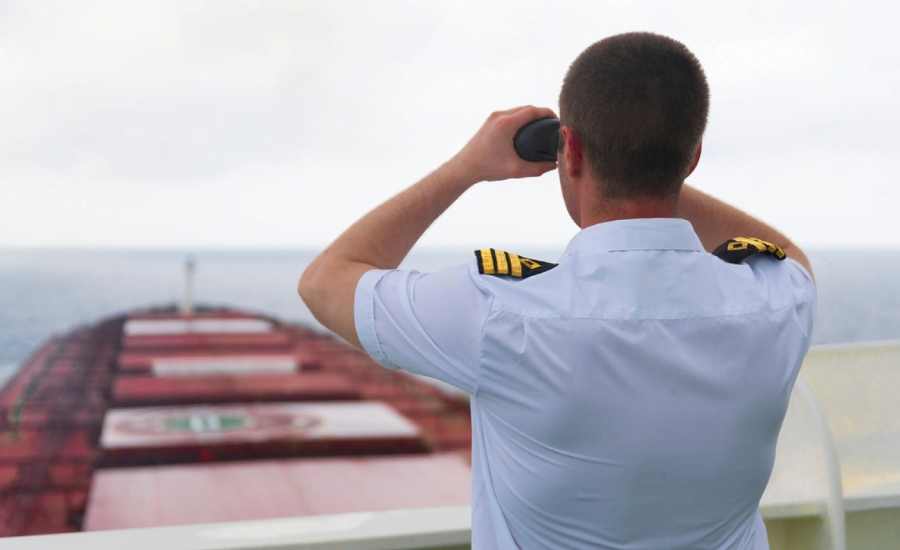
The shipping industry is a dynamic and ever-growing industry that not only offers opportunities for an adventurous lifestyle full of exciting and well-paying career prospects but also offers more career opportunities than the typical 9-to-5 routine. It provides challenge and responsibility to people who demand more from them. Royal Naval Officers are highly regarded around the world and have great career possibilities both at sea and on land with Cadet Development. More than 95% of his products are transported by sea. That means Xboxes, smartphones, the latest Nike sneakers, cars, food, fuel, books, and everything else arrives here by boat.
Merchant Navy
Merchant Navy is the name of international merchant shipping. It is made up of several shipping companies that employ people as officers or seafarers, known as merchant mariners. Shipping companies vary greatly in the size and type of ships they operate, as well as the cargo they carry and the areas in which they operate. Their trade routes can cross every continent and every ocean on Earth.
Types of merchant ships include:
- Container Ship
- Cruise Ship
- Oil Tanker
- Gas Tanker
- Chemical Carrier
- Bulk Carrier
- Cable Layer
- Ro/Ro Ferry
- Car Carrier
- Oil Rig Supply Vessel 444 4
- Multipurpose Cargo Ship
- British Fleet Auxiliary Ship
- Superyacht
How do I Become an Officer on a Ship?

The highest rank on a ship is the captain or chief engineer. To achieve this, there is a clearly defined career path, starting with enrolling in an officer Cadet Development program and training to become a deck officer, engineer, or electrical engineering officer. This is a fully subsidised three-year program that combines academic and practical cadet duties and development training at a maritime school with an apprenticeship period at sea. At the end of your cadetship, you will receive either an honours degree, a foundation degree or an academic HND degree. You can also obtain a certificate of qualification, which is a professional qualification to become a duty officer.
Training to become a Cadet Development takes approximately three years, and the program consists of five training phases, which alternate between the academy and at sea aboard a shipping company ship. Here’s a quick overview of Cadet Development Training: cadet duties and development is that It starts with and is designed as follows: It provides officer candidates with the skills and basic academic knowledge necessary for professional certification by the MCA and safe operations at sea. Cadets must also complete special safety training required by international treaties.
Year 1 – Phase 2
Cadet Development takes place at sea to gain practical experience on board. Deck cadets work with seafarers and develop practical navigation and other seamanship skills under the supervision of qualified officers. Engineering and Her ETO candidates learn from qualified engineers and electrical engineers who help put academic theory into practice.
Years 2 and 3 – Phases 3, 4 and 5
Training alternates between onshore learning for deepening knowledge and specialised short courses and work at sea for professional development. The more your training progresses, the more responsibility you will have. Phase 5 concludes with the final exams and evaluations required to complete the cadet’s training.
Fully Sponsored by the Shipping Company
To apply for a Director Candidate position, you must apply directly to the shipping company (not via us or UCAS). The program is similar to training, but it is full-time, and the course fees and often a living allowance are paid by the sponsoring transport company. Starting salaries for newly qualified civil servants are around £25,000 a year, most of which are tax-free as they work overseas.
Superyacht Cadet Development
Post We also run a Cadet Development Training program tailored to the superyacht industry. The program follows the Merchant Navy Deck Officer Cadet Development Foundation Degree Course and includes core MCA knowledge units such as bridge watch, chart work, ship stability and cargo work, but also superyacht operations, paint care, additional superyacht-specific units such as Hospitality are also included. Academic admission requirements are the same as the Merchant Naval Cadet Development Program, and prospective students can receive sponsorship through Trinity House.
A Unique Lifestyle
No matter what kind of ship you sign up for, you’ll experience life in a completely different way. Officer candidates are sent to sea as soon as they complete their initial induction phase with our company within a few months of joining the airline. Ships operate on a 24/7 basis, and crew members take turns on vacation once a ship is deployed. While technical personnel and crew members are often on daily watch on a typical 4-hour on-call, 8-hour off schedule, the working hours of most hotel operations staff on cruise ships and ferries depend on daily life.
Lifestyles at sea vary depending on individual ship type and trade actions but typically offer great opportunities to travel around the world. Food and accommodation on board are excellent, with many ships having separate cabins and private bathrooms for officers. Vacation, pay, benefits, and perks vary by company but are generally very good. For example, a qualified official may receive more than two months of vacation after a four-month expedition. Many UK nationals also benefit greatly from tax exemption, provided they meet the relevant requirements.
Main Role

Deck Officer (Navigator)
Deck officers supervise bridges at sea and ships in ports. They are responsible for transportation planning, safe navigation of the ship, loading and unloading of cargo, ship stability, communications, and maintenance of the ship’s hull and deck equipment. The Master or captain of a ship has ultimate responsibility for the safety of the crew, ship, cargo, and environment. Only navigators can be promoted to captain.
Naval Engineer Officer
The Naval Engineer Officer is responsible for the maintenance and operation of a ship’s major propulsion machinery and auxiliary systems. The Chief Engineer is the head of the department and is responsible to the Master for the efficient operation of the ship.
Marine Electrical Engineering Officers (METO)
These specialised officers work in engineering departments and are responsible for maintaining shipboard control technology and electronic systems, including propulsion controls, radio communications, and electronic navigational aids.
What makes a Successful Seafarer?
A successful seafarer needs special personal qualities to meet the demands of the job. It’s important to be tolerant when dealing with time away from home and living in close quarters with other crew members.
A ship’s officer must possess the following qualities:
- Decisiveness
- Confidence
- Calm under pressure
- Self-discipline
- Demonstrates initiative
- Excellent team member
- Skillful and versatile
- Effective communication skills









